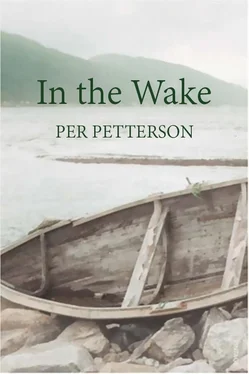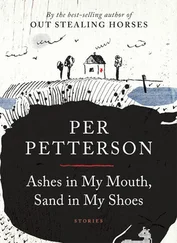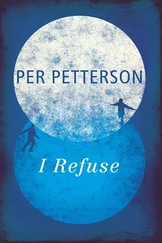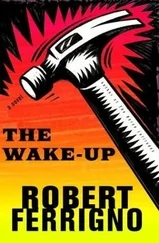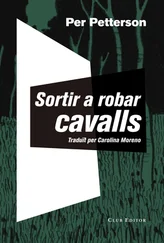Per Petterson - In The Wake
Здесь есть возможность читать онлайн «Per Petterson - In The Wake» весь текст электронной книги совершенно бесплатно (целиком полную версию без сокращений). В некоторых случаях можно слушать аудио, скачать через торрент в формате fb2 и присутствует краткое содержание. Год выпуска: 2007, Издательство: Vintage, Жанр: Современная проза, на английском языке. Описание произведения, (предисловие) а так же отзывы посетителей доступны на портале библиотеки ЛибКат.
- Название:In The Wake
- Автор:
- Издательство:Vintage
- Жанр:
- Год:2007
- ISBN:нет данных
- Рейтинг книги:4 / 5. Голосов: 1
-
Избранное:Добавить в избранное
- Отзывы:
-
Ваша оценка:
- 80
- 1
- 2
- 3
- 4
- 5
In The Wake: краткое содержание, описание и аннотация
Предлагаем к чтению аннотацию, описание, краткое содержание или предисловие (зависит от того, что написал сам автор книги «In The Wake»). Если вы не нашли необходимую информацию о книге — напишите в комментариях, мы постараемся отыскать её.
Slowly, uncontrollably, the memories return to him, and Arvid struggles under the weight of the tragedy which has blighted his life — the death of his parents and younger siblings in an accident six years previously.
At times almost unbearably moving,
is nonetheless suffused with unexpected blessings: humour, wisdom, human compassion, and a sense of the perpetual beauty of the natural world.
In The Wake — читать онлайн бесплатно полную книгу (весь текст) целиком
Ниже представлен текст книги, разбитый по страницам. Система сохранения места последней прочитанной страницы, позволяет с удобством читать онлайн бесплатно книгу «In The Wake», без необходимости каждый раз заново искать на чём Вы остановились. Поставьте закладку, и сможете в любой момент перейти на страницу, на которой закончили чтение.
Интервал:
Закладка:
And then we march across the road. I with my finger at her neck and she with her hands in the air and a really serious face, and by the steps she says aloud: “Please, I am just a little girl. I want to go home.”
“Oh yeah?” I say, just as loudly, and then I open the door. Out of the corner of my eye I can just glimpse a gaping face behind the curtain of the nearest window.
“Keep your hands up and get inside,” I say.
We almost tumble over the threshold, laughing the whole way through the place and sit down at a table looking over the water. We are the only people in the café. When a man eventually comes up to the table I notice he is moving in a stiff and cautious way. I order waffles and cocoa for us both.
“Do you think he’s called the police?” my daughter whispers before he is out in the kitchen again.
“I hope not,” I say.
After a little while the man comes back with our order on a big tray he carries high above his head as if the place was crammed with people, but we are still the only ones there, and he lowers the tray in a sweeping circle and with a flourish sets white cups and plates of waffles on the table and a bowl with a silver spoon and jam. He pours the cocoa from a big white jug and when the cups are full he puts the jug down on the white cloth. He does not spill a drop. We just sit quietly watching. Everything is so white and sumptuous that half would be sufficient, and the waffles are lightly toasted and make the jam glow in the light from the window, and he makes an elegant bow and says: “Enjoy your meal,” and goes off again, not stiff at all now. He can’t possibly have called the police.
“Kidnapping’s not half bad when you get waffles,” says my daughter, impressed with the service. So am I, but I have an annoying feeling that what I have just seen is an exaggeration, a masquerade in my honour. And besides, I am chock-full of brown bread. I settle for the cocoa, take a mouthful and look out across the water.
“So you thought I was going to kidnap you,” I say.
“Isn’t that what divorced dads do?” she says, and it sounds like a declaration of trust I have not earned, for I have never had a thought like that, and it’s suddenly hard to sit still, hard to breathe, my legs tingle, and I get up, saying: “I just have to go to the bathroom, you eat your waffle,” and then I walk between the empty tables out to the corridor and on through another room with tables as empty to the toilet at the other end. I stand in front of the basin for a bit and look at myself in the mirror. Then I turn on the cold tap and let the water run into my hands and I rinse my face and neck several times until water runs from my hair, from my nose and ears. I look round for a towel, but there isn’t one, and then I have to go into a cubicle, where I pull off about ten metres of paper and use that to dry myself. Not all that successfully, and then I go back.
“Did you have a shower,” my daughter says, “with your clothes on?”
“There wasn’t a shower there,” I say, “but it splashed out really well from the tap, so when I stood on my hands I could shower. It was a bit difficult with my jacket on, but I managed. It’s important to be able to do handstands in a tight spot.” She smiles, she does not believe a word I say.
“Grandfather could do handstands,” she says.
She has never seen that, but I have told them about everything he did, all the things he made his body do that no-one else we knew could do.
“You eat my waffle too, I’m not really hungry.”
“Then I won’t have room for supper.”
“Say you have a tummy ache. That will do it.”
She takes the waffle from my plate and starts to eat without putting jam on, and then she quietly cries while I look out of the window and finish the cocoa, which is not that warm any longer and not quite as good as the kind I had at the hospital. On the other side of the lake a man goes down on to the ice to test it and see if it carries. He takes a few steps out and then back again. He is just a black pin figure. I turn to my daughter.
“Hi, there,” I say, and she chews and chews and looks down at the table until she has finished crying, and then she wipes her face with the backs of both hands as children do and says: “Why do we hardly ever see you any more?”
I have been waiting for that question, almost looked forward to it, and still it makes me jump.
“That’s not easy to explain,” I say, hearing how feeble those words are, for at this moment it is suddenly impossible to explain. “But that’s going to change,” I say, and that was what I had intended to say, and I mean it, I do. She doesn’t reply, just nods and goes on chewing, and I look at my watch and say: “You’d better finish your cocoa, I think the kidnapping is over for today.” She gets up quickly, nearly knocking her chair over, and looks nervously at her own watch and starts to walk towards the exit. I follow her. The man who served us is in the corridor, is stiff again, and he barely nods and does not say “Come again”. I feel his eyes on my back across the road to the car park where my car stands all by itself looking vulnerable in a way I cannot explain, and it makes me annoyed. I force myself to stop and take a long look around before I unlock the car door. I look back at the café as firmly as I can, and then I look over Gjer Lake. It has been quite a day. There has been snow, there has been rain, and after some time there was sunshine, and now the fog comes stealing over the ice like milky-white soup, it oozes up the shores and rises to roll across the road and hides the signpost with directions to Svartskog. Before we have settled into the car the fog has reached us, and it swells past the windows and wraps us up. We close the doors and I start the engine and drive carefully the whole way alongside the lake and cross back to the fjord again, then up among the houses in Herregårdsveien and past the school. I stop beside the little skating rink on the bend just before the house where she lives; around it the big properties are studded on the slope behind the shining ice, greyish white with the fog that welds them together, some of them old and dignified, some new-rich and ugly-looking. We sit in the car watching the world disappear.
“Do you still have to sleep with the light shining in your face?” I ask.
“No, I’ve grown out of that.”
“That’s good,” I say, but I do not mean it, because even though it may sound silly I do not want her to grow out of anything that I cannot see, I want her to wait for me. But I can’t very well tell her that.
She opens the door quietly, picks up her rucksack and stands with a hand on the door for a moment before saying: “Do I have to tell Mum about this?”
“I don’t really know, it’s probably best not to.”
“Fine,” she says, “see you,” she says, looking as if she is about to lean into the car towards me, but she changes her mind, shuts the door and starts to walk with the pack on her back up the gravel road to the tall yellow Swiss chalet where they live on the first floor. Maybe with some other man. I do not know. I did not ask.
8
I DRIVE THROUGH the fog over Lambertseter and on to the ring road for E6 and head north. Everything moves in slow motion, the rear lights of the car in front are the only things I see, no sudden movements, no loud sounds, nothing but this milky-white soup in which everything flows silently as in a sleepwalker’s dream. I feel tired again, I want to go to sleep. I calculate distance with speed to find out how long it will take me to get home, and I realise I am in for trouble on the way. It’s rush hour, the car in front moves slower and slower until it almost stops, and I have to squeeze my eyes to focus enough not to drive into it from behind. I keep blinking and count the books I have read, take each author in turn and start with the ones I like best. A line of cars steals slowly past me on my left like the shadow of a ship, it is tall and mysterious, it is Pequod , it is the barque Zuidersee , it is the Flying Dutchman , hardly a light to be seen, but not like in Wagner, for everything is a quiet murmur and feels almost safe, and darkness sinks inside the car. I am nodding off, there is a rushing in the treetops, I am skiing through Lillomarka with my father, but I do not want to, my body is not like his body, I am only twelve and I am worn out, and he wants to go on and on, and he coaxes me, he tempts me on, and then insults me, and he does not stop. The snow is wet, grey and slushy, it slides from the trees around me and hits the ground with a sticky plop. Everywhere there is dampness in the air, as in the baths I hate, and I do not recognise the places we pass and I am afraid he will leave me. At the same time I want him to. Leave me. Everything is floating in this fog, and I do not notice my car veering across to the next lane before metal scrapes metal. The driver in the big van beside me sounds his horn and wakes me up with loud hooting and banging on his window. I jump in my seat and turn my car back into my lane and put on speed as I feel a banging at my rear bumper and then a second driver leans on his horn. I should have stopped now to see if there was any damage, but it’s not possible, there are thousands of us gliding the same way in a slow stream, and I open my eyes wide and look for a way out. I glimpse an opening to the right, signal and move across. I barely make it. There is hooting all around me. It is the grand finale. I cross again and get into the bus lane. Now I can go no further. The next lane is solid rock. I stare through the windscreen watching for the first turn-off. Yellow and black, yellow and black, it’s almost impossible to see, but then there is suddenly yellow and black. I am in the right position and sail up the slip road looking in the mirror to see if there is anyone on my tail. There isn’t.
Читать дальшеИнтервал:
Закладка:
Похожие книги на «In The Wake»
Представляем Вашему вниманию похожие книги на «In The Wake» списком для выбора. Мы отобрали схожую по названию и смыслу литературу в надежде предоставить читателям больше вариантов отыскать новые, интересные, ещё непрочитанные произведения.
Обсуждение, отзывы о книге «In The Wake» и просто собственные мнения читателей. Оставьте ваши комментарии, напишите, что Вы думаете о произведении, его смысле или главных героях. Укажите что конкретно понравилось, а что нет, и почему Вы так считаете.
